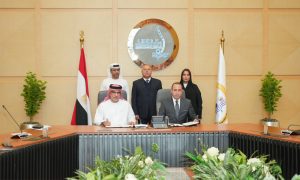Egypt, Russia sign deal to build nuclear plant
Egypt’s first nuclear plant, set to be built in the north of the country, is expected to be completed by 2022

Moscow and Cairo have inked an agreement for Russia to build a nuclear plant in Egypt and extend a loan to the North African nation to cover the construction cost, it was reported.
According to a spokesperson for Rosatom, Russia’s state-owned nuclear firm, Egypt’s first nuclear plant will be built at Dabaa in the north of the country, Reuters reported. It is expected to be completed by 2022.
Speaking on state TV, Egyptian president Abdel Fattah al-Sisi said the project would involve building a “third-generation” plant with four reactors. Each of the reactors is expected to have a capacity of 1,200 megawatts.
While the value of the deal is not clear, Sisi said the loan from Russia would be paid off over 35 years.
“The state’s budget will not shoulder any of the cost of building this station. Rather, the cost will be repaid out of the real energy production that will be generated from the station,” he said, according to a statement on Egypt’s State Information Service.
Egyptian companies will implement no less than 20% of the project, the president noted.
Sergey Kiriyenko, general director of Rosatom, said the Dabaa nuclear plant will be the largest Russian-Egyptian project since the Aswan High Dam and will mark a “new chapter” in bilateral relations between the countries.
“The plant will make Egypt the regional leader in the field of nuclear technologies and the only country in the region that will have a generation 3+ plant,” Rosatom’s press service quoted Kiriyenko as saying.
While Egypt has been considering a nuclear plant at Dabaa on and off since the 1980s, it froze its plans after the 1986 Chernobyl disaster. In 2006, the country announced that it intended to revive them under former President Hosni Mubarak. Mubarak was then overthrown in the 2011 uprising.
Sisi, who came to power in 2014, said in February that he had signed a memorandum of understanding to proceed with the nuclear project.
The timing of the deal is significant as it comes not long after a Russian-operated airline went down in Sinai on October 31, killing all 224 people on board.



















